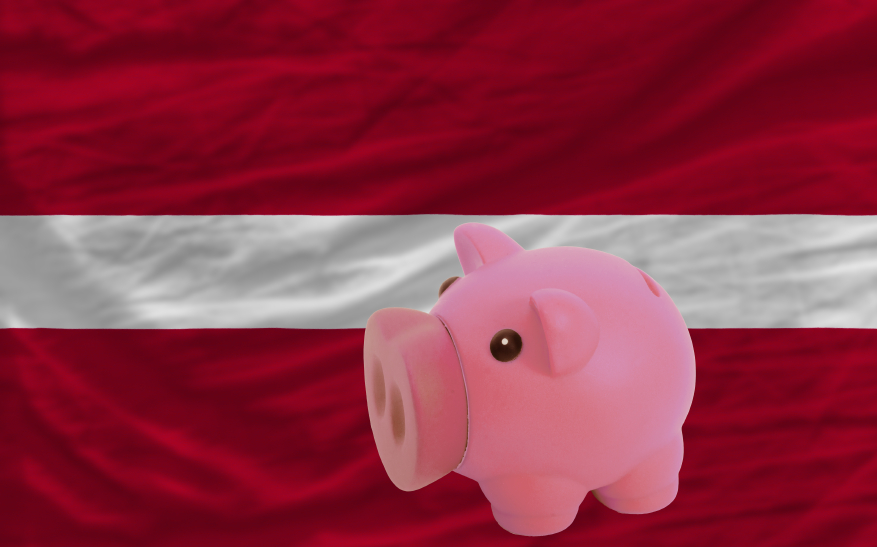Financing your Studies in Latvia

Cost of your studies
Tuition fees
Latvian HEIs charge fees which vary based on the level of the degree and the type of degree. There is a state subsidy for some places in HEIs, which means that 45% of first-cycle students and 60% of second-cycle students do not pay fees. Each HEI sets its own fee structure. Fees vary from 680 to 3,400 lats per year for full-time students in the first-cycle and from 800 to 4,580 lats in the second cycle. For college and short-cycle programmes fees vary from 550 to 900 lats per year.
EU students pay the same fees as Latvian students, but non-EU foreign students pay the same fees for first-cycle programmes as Latvian students, except in programmes like medicine, dentistry and engineering where fees are somewhat higher. In second-cycle programmes fees for foreign students range from 1,100 to 8440 lats per year.
Cost of living
Total living costs for a student range from 430 to 780 lats a month, depending on the type of accommodation chosen. Student hostels offer the cheapest accommodation at around 140 lats per month inclusive of all bills for shared accommodation, up to 190 lats a month for a single room. Private one-bedroom apartments cost between 140 and 200 lats a month, while three-bedroom apartments suitable for sharing are around 450 lats a month. In a private apartment additional bills for heating, hot water and lighting cost 115 lats a month for a large apartment suitable for sharing. Internet and cable television costs are about 10 lats a month. An inexpensive restaurant meal costs around 5 lats. Total monthly food costs are estimated at 55 lats.
Financing your studies
Public support
27% of Master’s students and 43% of doctoral students receive grants from the state. Another 40% of Master’s students receive support through the European Social Fund. The state provides grants to 12% of students based on academic merit or need. Those based on merit are targeted to priority areas – natural sciences, engineering and computer sciences. Need-based grants include disability, orphans with families, large family and those in economic need. Grants are 70 lats per month over 10 months of the year for first and second-cycle programmes. There are tax benefits of 150 lats per year for health care and education. There is a personal tax allowance for parents of children under 24 who are full-time students. There are no family allowances in Latvia.
The Government is planning a reform of the support system, with a shift to a performance-based public funding allocation mechanism and a change in the fee structure. There is currently no date for the implementation of these reforms.
Scholarships
The Latvian government issues a number of scholarships under various bilateral agreements and reciprocal arrangements with other countries. These countries include most EU nations, plus Japan, Mexico and the United States. A foreign student must have successfully completed one year of study for a first-level degree in their home country when they apply. These scholarships provide 350 lats a month for first and second-cycle programmes and 470 lats a month for doctoral studies.
Similar scholarships are available for summer programmes in Latvian HEIs. Most private and university scholarships available to international students studying abroad can be used to study at the appropriate levels in Latvian HEIs. Latvia participates in the European Erasmus Mundus programme for advanced study at Master’s and Doctoral levels. Some individual universities, chiefly private ones, may also offer scholarships based on academic excellence. Details are available from the specific universities.
Student Loans
11% of students in Latvia take out special loans for their studies. EU and foreign students may also be eligible for study loans. These loans are from private banks but are guaranteed by the Latvian government. Two types of loans are available to students. The first type is for fees and the second for living costs. This second type is capped at 120 lats per month. Repayments must begin within twelve months of graduation.
Student Jobs
International students can work part-time in Latvia. The maximum number of hours is 20 per week without needing a work permit. Once a student has a residency permit they may apply for a work permit. EU citizens may work freely under the freedom of movement provisions of the European Union. However, given the high levels of unemployment, work is difficult to find, pay rates are low by European standards, and fluency in Latvian or Russian is normally essential. Teaching English is also a possibility.
